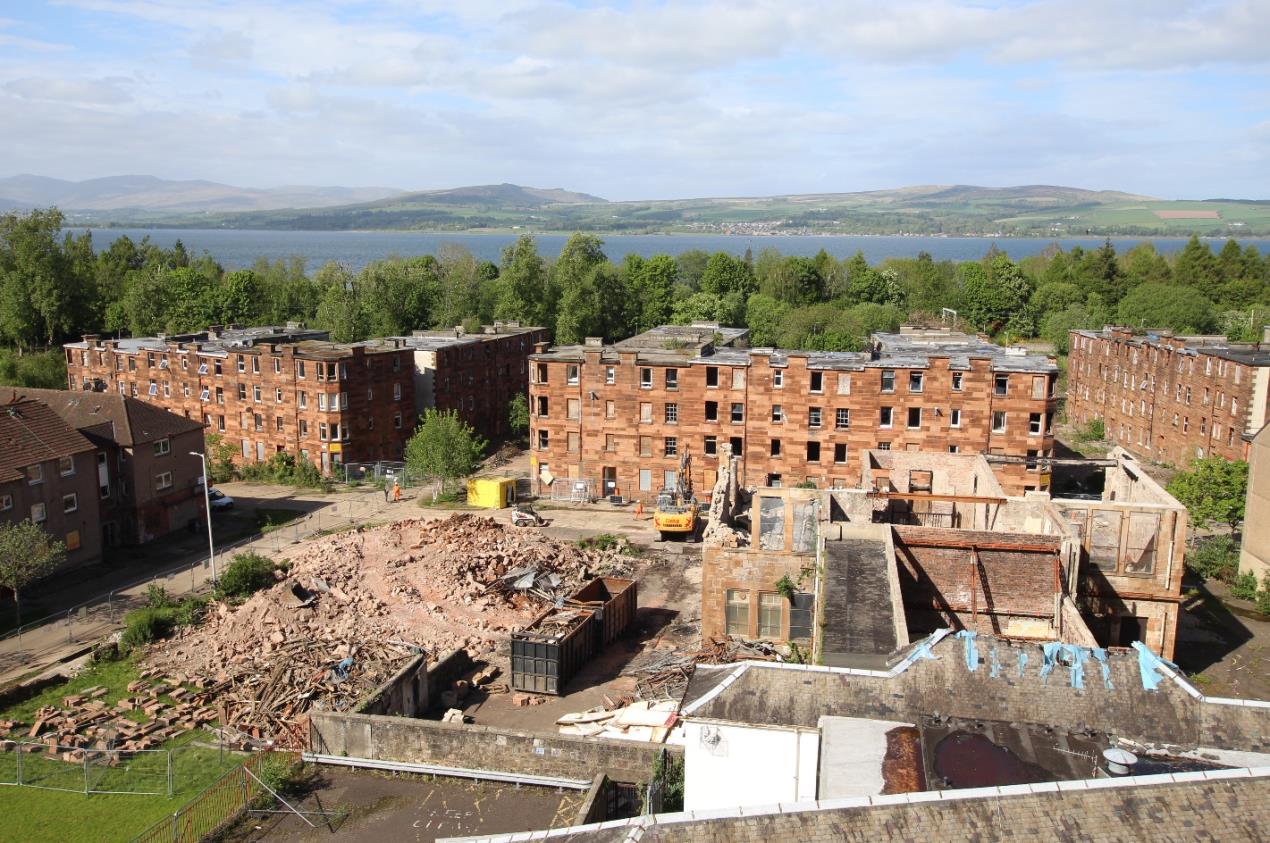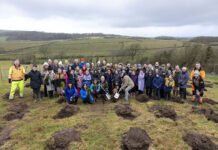
GREENOCK-based Caskie Limited has started the demolition of the Clune Park estate in Port Glasgow.
A fire-damaged former church within the estate has been pulled down, on behalf of Inverclyde Council. It is part of the first phase of demolition works, which will also see an old primary school building and an initial 138 properties across 15 tenement blocks razed to the ground.
There are around 430 residential properties across 45 tenement blocks in total at Clune Park, most of which are or were privately-owned.
The council said demolition works are being carried out in the interests of safety after dangerous buildings notices were served following investigations by the local authority’s building standards officers and external surveyors.
Councillor Stephen McCabe, leader of Inverclyde Council, said, “While the former church, school and initial batch of residential properties are being demolished on safety grounds, this is a significant milestone nonetheless. Clune Park was once a thriving and desirable community but sadly most of the properties are now beyond repair for a variety of reasons.
“However, Clune Park is in a great location with excellent transport links and can rise from the ashes and become a good place to live once again. The demolition works are the first key step towards achieving that goal of regenerating Clune Park and attracting the investment required to build quality, affordable housing for the people of Port Glasgow and Inverclyde.”
The council has been acquiring properties in Clune Park for a number of years and now owns a significant proportion of the estate. The vast majority of Clune Park is derelict and the residential blocks, former school and the old church buildings have all been affected by deliberate fires and anti-social behaviour in recent times, which has contributed to the deterioration of the condition of the properties.
A new Clune Park masterplan was approved in 2023 with the aim of demolishing the estate and building up to 165 new affordable homes for social rent. The masterplan is subject to a variety of factors, including securing ownership of the remainder of the estate, obtaining planning permission, and attracting the necessary external funding to build new homes.








